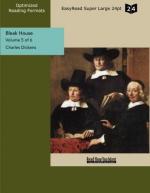|
This section contains 12,303 words (approx. 42 pages at 300 words per page) |

|
SOURCE: Dolin, Kieran. “Reformist Critique in the Mid-Victorian ‘Legal Novel’—Bleak House.” In Fiction and the Law: Legal Discourse in Victorian and Modernist Literature, pp. 71-96. Cambridge: Cambridge University Press, 1999.
In the following essay, Dolin focuses on Dickens's criticism of the court of Chancery and its inheritance laws as exhibited in Bleak House.
A reviewer of the first number of Bleak House anticipated that Jarndyce and Jarndyce would “doubtless be a famous cause—and take its future place beside the Common Pleas case of Bardell v Pickwick in the Law Reports of Fiction.”1 This prediction has proved true in the long term.2 When the serialization of the novel was completed, the same reviewer criticized Dickens for failing “to keep the mighty mystery of Iniquity and Equity perpetually before the reader,” and for giving, instead, “the first concern and sympathy … to Lady Dedlock's secret.”3 These remarks provide a compact...
|
This section contains 12,303 words (approx. 42 pages at 300 words per page) |

|


